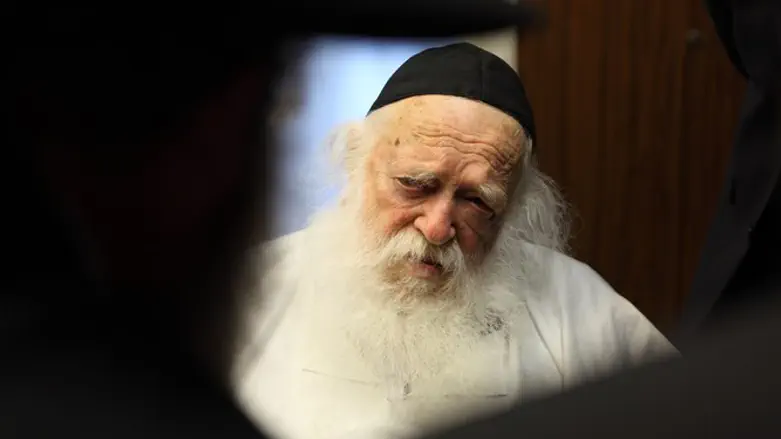
Over a week has passed since the tragic events that occurred on Lag b’Omer in Meron, and the trauma is still fresh, with so many lives, the majority of them young, having been cut short in such an abrupt and horrific fashion.
Especially among the haredi world, there is virtually no one who does not know or know of a family of one of the victims, or of someone who was at the scene but was spared death or injury.
Over the course of the past week, many of those spared have visited the home of Rabbi Chaim Kanievsky shlit”a in order to seek his blessing and advice. Many of the visitors have been young people who have described their ongoing trauma, disturbed sleep, and additional emotional difficulties as a result of their experiences on that terrible night.
Behadrey Haredim describes several such cases, published in the “Yedidei Yosher” pamphlet (edited by Rabbi Kanievsky’s grandson R’ Aryeh). Tragically, many people who were at the scene are tormented by the thought that while trying to flee the scene, they unintentionally trampled over others, and possibly even caused their deaths. In some cases, they fear that they may even have caused the deaths of their own friends or relatives.
In each case, Rabbi Kanievsky reassured them that they were not guilty of causing these tragic deaths, and he then blessed them that they should be able to recover emotionally from what they have endured.
Rabbi Kanievsky also stressed that today, we have no prophets who can tell us why G-d brought this tragedy upon us. He exhorted men to increase their Torah learning, and women to be more meticulous in the laws and spirit of modesty and modest dress, and also in prayer.
One story that came to the notice of Behadrey Haredim related to a young American man who went to see Rabbi Kanievsky last week. The man was visiting Israel for a just a few weeks, and traveled to Meron for Lag b’Omer.
“I arrived in Meron, and was ascending the mountain toward the tomb of Rabbi Shimon bar Yochai, when a Jew stopped me, took me by the hand, and asked me for charity,” he related. “This Jew – I have no idea who he was – kept telling me about the story related in the Zohar Hakadosh about the Tanna [rabbinic sage -ed.] Rabi Yitzhak, who, after giving a coin to a poor man, and reviving him, dreamed that in the merit of this act of charity, he was spared a Heavenly sentence of death by drowning [see ZoharHakadosh, Parshat Beshalach]. I gave him a sum of money, and continued on my way. A short while afterward, I found myself at the very place where the tragedy occurred, and only by a miracle did I escape and remain among the living.”
Another story related in the pamphlet concerned a father of two sons who were in Meron. One son was trapped in the deadly corridor and found himself lying between the dead and wounded. Miraculously, he escaped unscathed, and his father wanted to host a Kiddush in synagogue on Shabbat, in order to publicly thank G-d for sparing his son’s life. However, the boy’s mother was concerned that such a public event might arouse difficult feelings among others who had suffered, and was reluctant to allow the Kiddush to go ahead. Who was right?
Rabbi Kanievsky responded that there was no reason to fear ayin hara, and that the father was permitted – but not obligated – to host a Kiddush.
Behadrey Haredim also related the story of a certain rabbi of a town in the north of Israel who somehow did not hear of the Meron disaster until a few days had passed. It was only on the Sunday morning following Lag b’Omer that he saw the headlines in his newspaper and, when he learned of the deaths of 45 people, was so horrified that he lost consciousness. He fell and hit his head and was taken to hospital for treatment.
Unfortunately, reports have been surfacing of Jews needing professional treatment for trauma due to their experiences on that dreadful night. May G-d send a refuah sheleimah [complete healing] to the entire Jewish People.
